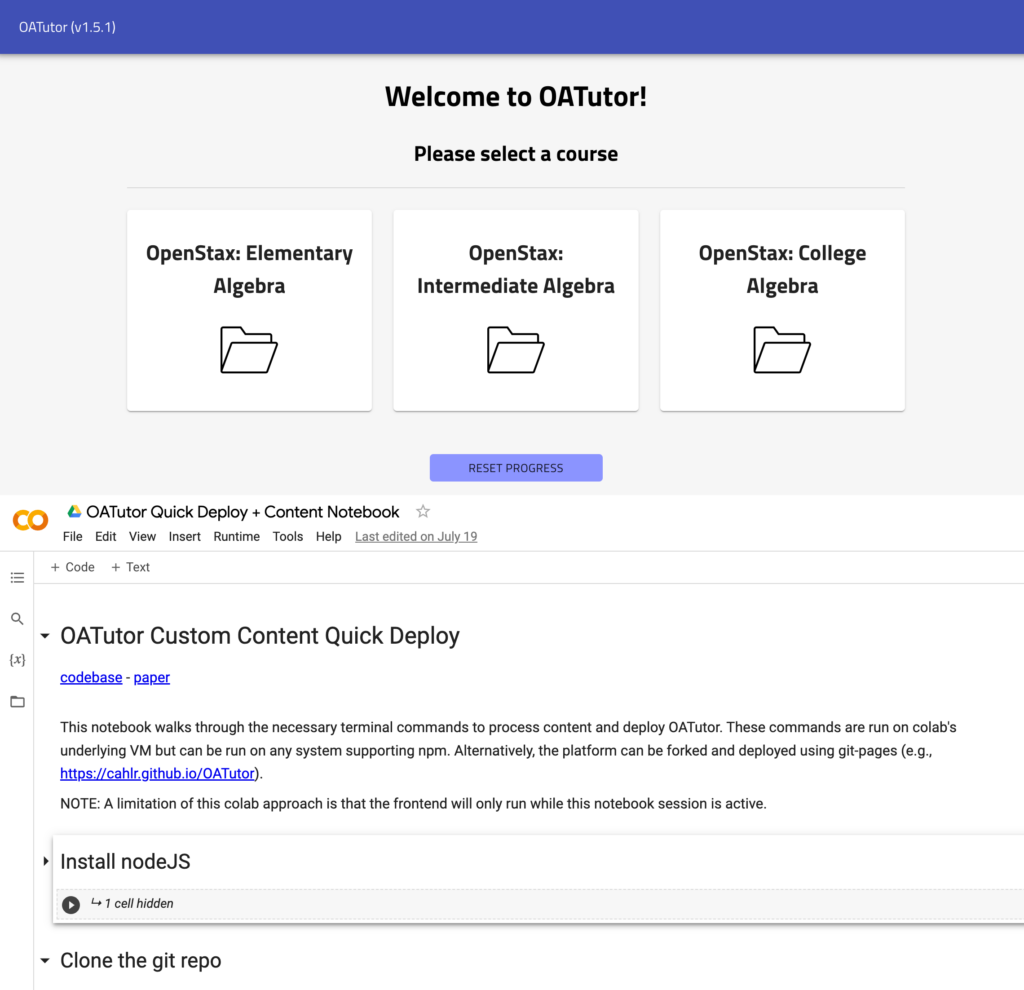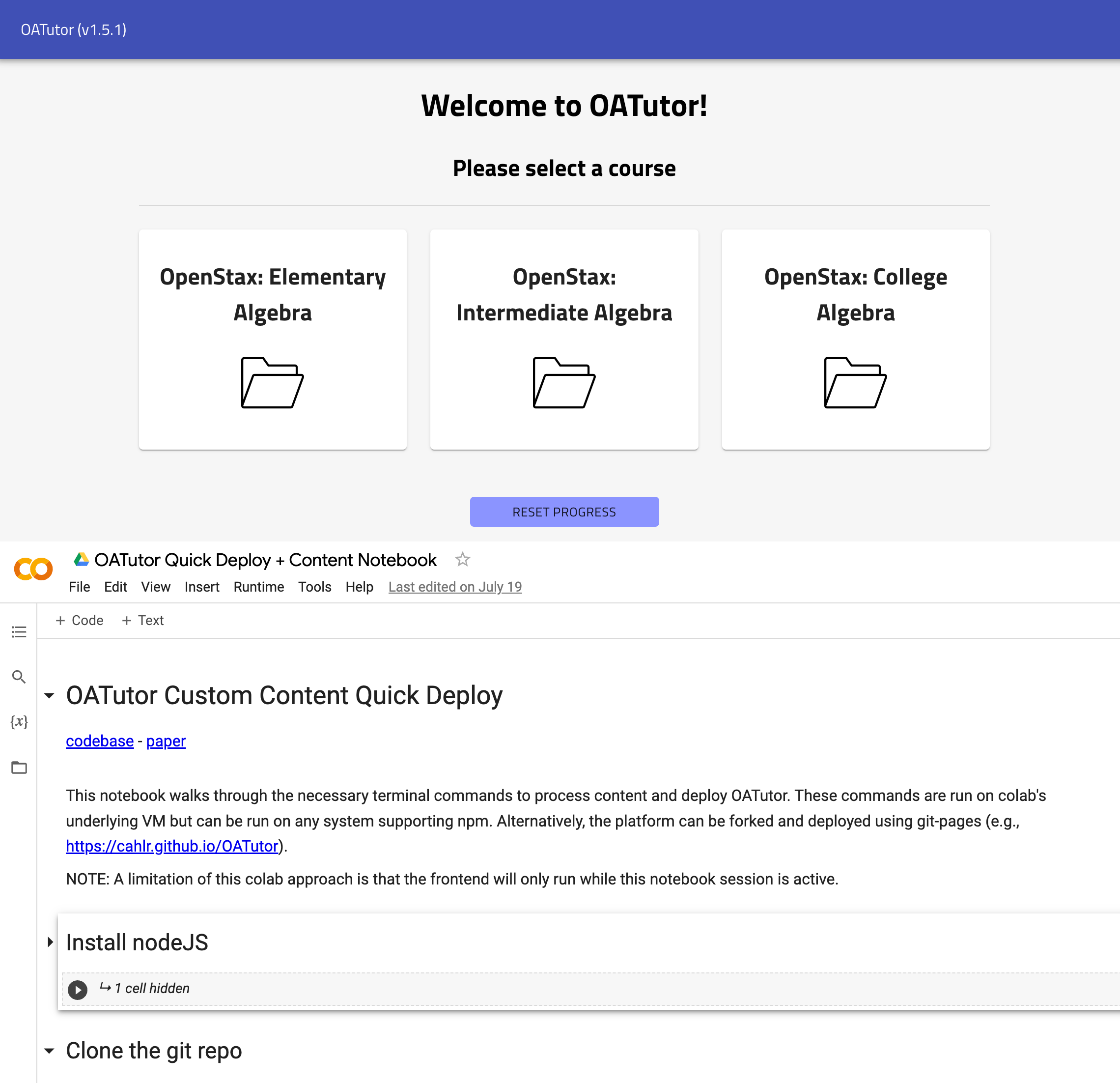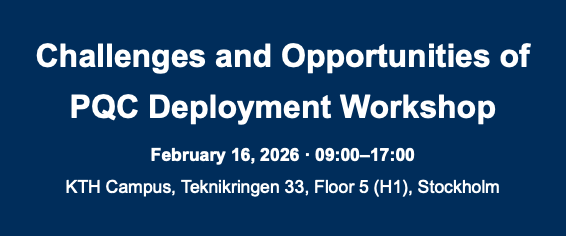Date and time: 19 September 2023, 15:00-17:00 CEST (UTC +2)
Lecturer: Zachary Pardos, UC Berkeley
Title: Introducing an Open-source Adaptive Tutoring System to Accelerate Learning Sciences Experimentation
Where: Digital Futures hub, Osquars Backe 5, floor 2 at KTH main campus OR Zoom
Directions: https://www.digitalfutures.kth.se/contact/how-to-get-here/
OR
Zoom: https://kth-se.zoom.us/j/69560887455
Meeting ID: 695 6088 7455
Moderator: Olga Viberg, oviberg@kth.se

The learning analytics field has embraced movements that spread access to education through open and free learning platforms. In this tutorial, we introduce OATutor (presented at CHI’23 [1]), the field’s first free and open-source adaptive tutoring system based on ITS principles and designed for rapid experimentation.
The MIT-licensed platform can be configured and deployed to git-pages in only a few clicks and supports BKT mastery-based adaptive problem selection. We demonstrate, with hands-on tutorials, how the system can be used to author content, rapidly run A/B experiments, interface with ChatGPT, and publish the entire experimental environment to GitHub to facilitate ease of replication and transparency, as demonstrated in a recent study comparing ChatGPT generated hints to human-tutor hints [2].
The structured JSON format of the four CC BY 4.0-licensed courses worth of content released with OATutor opens up avenues for researchers to apply new and existing educational data mining and NLP techniques (e.g., KC tagging) and rapidly evaluate the impact of any subsequent changes on learning. Attendees are suggested to bring a laptop to participate in the hands-on activity of modifying content and launching their own instance of the tutor.
Bio of lecturer: Zachary Pardos is an Associate Professor of Education at UC Berkeley studying adaptive learning and AI. His early scholarship focused on formative assessment using Knowledge Tracing, the predominant model used for estimating skill mastery in computer tutoring system contexts. His recent work designing Human-AI collaborations to pave pathways to and within higher education systems has been published in venues such as SIGCHI, AAAI, The Internet and Higher Education, and Science. This work has included the development of high-quality tools used by tens of thousands of users, including course recommender systems (AskOski.com), a Python library for Knowledge Tracing (pyBKT.com), and an open-source adaptive tutoring system and creative commons content library (OATutor.io).
He earned his PhD in Computer Science at Worcester Polytechnic Institute. Funded by a National Science Foundation Fellowship (GK-12), he spent extensive time with K-12 educators and students working to integrate educational technology into the curriculum as a formative assessment tool. After completing his PhD in 2012, he spent one year as a Postdoctoral Associate at the Massachusetts Institute of Technology. At Cal, he directs the Computational Approaches to Human Learning research lab, teaches in the data science undergraduate program, and is an affiliated faculty in Cognitive Science.
Zachary Pardos is a Digital Futures Scholar-in-Residence during August-September 2023.





